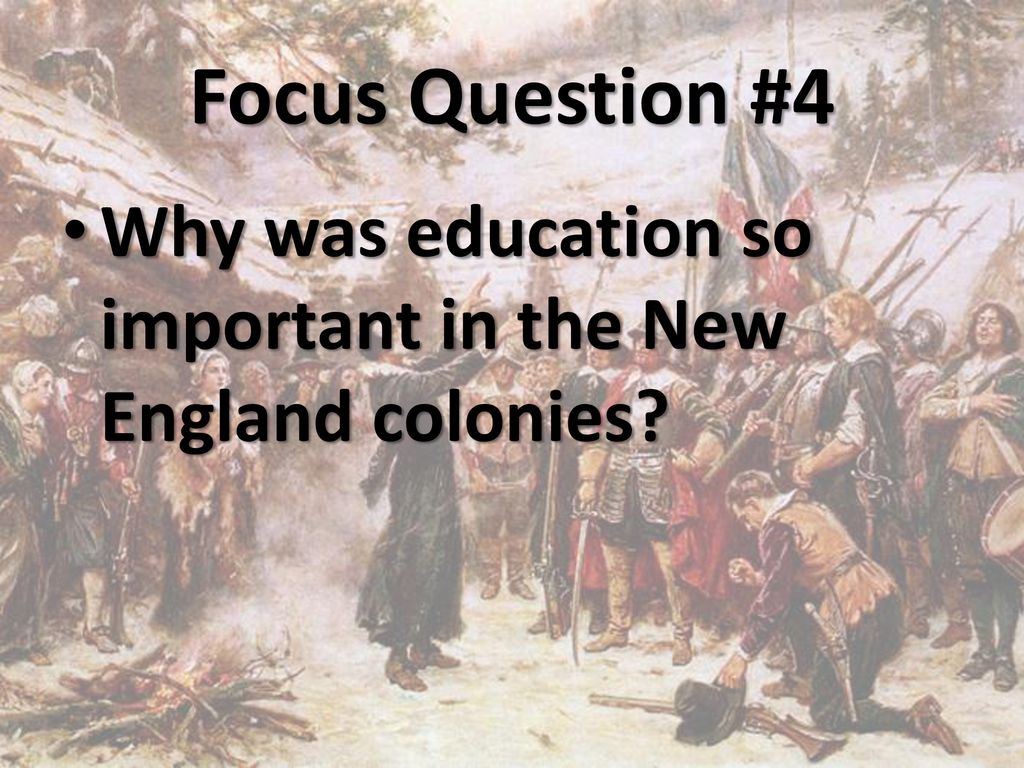In the New England Colonies, education was essential for religious and societal reasons. The colonies placed a strong emphasis on literacy and education to ensure that individuals could read and interpret religious texts and maintain their religious beliefs.
Education also played a crucial role in developing a well-informed and responsible citizenry capable of participating in civic affairs and self-governance. Schools were established to provide both boys and girls with basic reading and writing skills, with a particular focus on religious education.
The Puritans believed that a well-educated population would lead to spiritual and social cohesion, thereby strengthening the colonies and their religious beliefs. Consequently, education was highly valued and fully integrated into the fabric of colonial life in New England.
1. Promoting Religious Values And Literacy
In the New England Colonies, education played a significant role in promoting religious values and literacy. The Puritan Church had a strong influence on education, emphasizing the importance of reading the Bible. They believed that an educated and literate population was crucial for the preservation of their religious beliefs and the community as a whole.
To achieve this, grammar schools were established by the Puritan Church. These schools focused on teaching children how to read and write, with an emphasis on religious texts. The goal was to ensure that individuals could interpret and understand the Bible for themselves.
By promoting literacy, the New England Colonies sought to create a society of informed and devout individuals. This focus on education not only strengthened religious values but also provided a foundation for intellectual growth and overall community development.

Credit: www.historycentral.com
2. Fostering A Well-informed Citizenry
Education played a crucial role in the New England Colonies as it aimed to foster a well-informed citizenry capable of actively participating in society. By providing access to education, individuals were prepared for leadership roles and political engagement. The link between education and colonial leadership was established, as it was believed that an educated populace was necessary for the growth and success of the colonies.
In the New England Colonies, education was viewed as a means of cultivating future leaders and politicians. The emphasis on education allowed individuals to gain the knowledge and skills needed to contribute effectively to their communities. It was believed that an educated individual would be better equipped to make informed decisions and participate actively in the governance of the colonies.
In conclusion, education played a pivotal role in the New England Colonies by striving to create a well-informed citizenry capable of shaping the future of the colonies. The importance placed on education was closely tied to the belief that an educated populace was essential for the growth and success of the colonies.
3. Cultivating A Strong Work Ethic And Practical Skills
htmlIn the New England Colonies, education focused on cultivating a strong work ethic and practical skills. Rather than solely emphasizing academic subjects, the educational system emphasized teaching practical skills and trades that would benefit the community. One way this was achieved was through apprenticeships and vocational training.
Apprenticeships provided individuals with hands-on experience in a specific trade, allowing them to develop practical skills that were in demand in the colonies. These apprenticeships laid the foundation for a skilled workforce that contributed to the economic growth of the region.
By prioritizing practical skills, the New England Colonies were able to create an educated workforce that could contribute to the economic prosperity of the region. This approach to education helped to create a society that valued hard work, self-sufficiency, and the ability to contribute meaningfully to the community.
Conclusion
Education played a crucial role in the New England Colonies for several reasons. It fostered an educated and literate society that could govern itself. Education was also valued for religious purposes, as it allowed individuals to read and interpret religious texts independently.
Moreover, education promoted social mobility and economic growth. Overall, education in the New England Colonies laid the foundation for a thriving and prosperous society.







